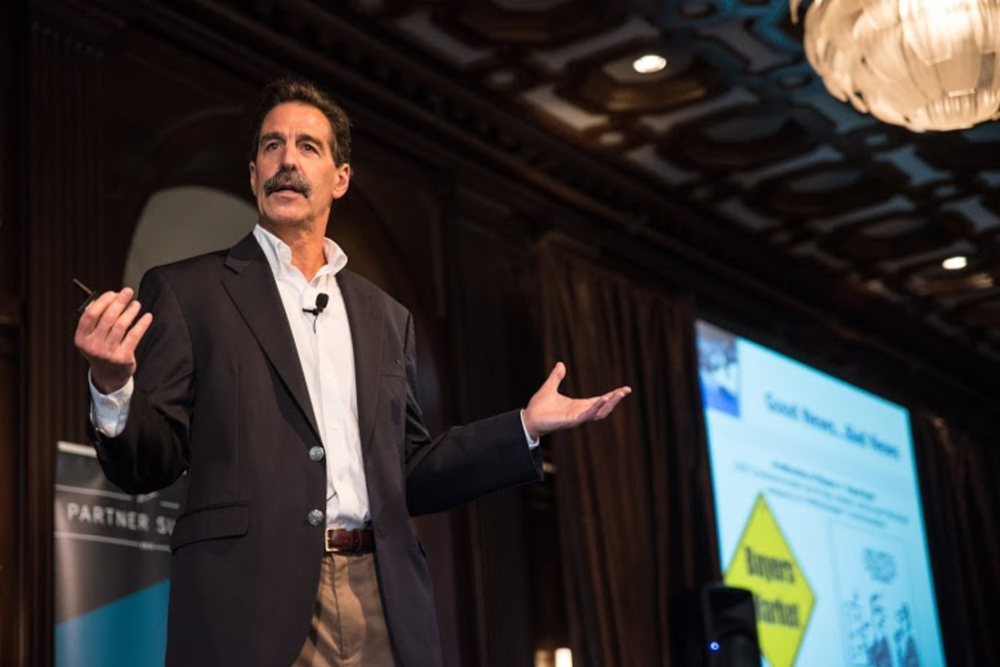At an April 26 webinar I attended, one presenter in particular highlighted how cloud computing, the Internet of Things,
mobile software, and related technological solutions have forever changed the
marketer’s approach to customer experience.
“More and more marketers are going to be focusing on customer experience [and] how
that functionality is delivered via the end-user experience,” Jeff Kaplan, Managing
Director of Boston-area cloud consultancy THINKstrategies, told attendees. “The manifestation of this…is applications on demand, and there’s no better
place to find these applications than the mobile devices at our fingertips.”
Accordingly, Kaplan argued, the key to successful product differentiation, branding, and
customer experience lies in new software solutions–found in the cloud, mobile devices,
and the Internet of Things–because of an ongoing cycle of heightened customer
demands, and new opportunities for business models, promoting simultaneous excellence at
multiple core strengths.
To drive home his point Kaplan referenced a 1995 business book by Michael Treacy and Fred Wiersema, The Disciplines of Market
Leaders. A company could lead in its particular market
in exactly one of three specified areas, argued the book: product differentiation, operational efficiency, or
customer intimacy. The secret to being a successful business, according to the authors, was to select only one of these three
areas upon which to focus; splitting this focus would guarantee failure.
Today, said Kaplan, this argument is obsolete.
“Back then, this made a lot of sense,” said Kaplan, “However, we believe that in today’s
brave new world of the cloud, there is an opportunity to excel in all three areas, and
the leaders in this industry are doing just that; they are achieving a balance…across
each of these three disciplines.”
The cloud, said Kaplan, combined with our “on-demand world” made possible by
software; the nanotechnologies which are making IoT sensors cheap and ubiquitous; and an
explosion of mobile
devices that marketers already know they need to target to capture Millennials’
attention, has led to new monetization strategies for established companies, and new
business models for startups. Two in particular are vital for today’s digital marketer or
brand manager hoping to split their focus.
The first is the “shared economy”–new-economy companies like AirBnB and Uber that
don’t actually own or directly sell products or services, but instead use software-based
customer experience to facilitate peer-to-peer transactions.
The second is the SaaS-enhanced subscription model.
“Emerson [is a] heating and cooling business, but now they refer to themselves as being
in the comfort business,” pointed out Kaplan as he explained how Emerson’s “Climate-Control-as-a-Service” has improved the customer experience thanks to the deployment IoT
sensors, which in turn rely on the cloud.
Similarly, Kaplan pointed to Philips Lighting. The company’s “smart lighting”
solutions have helped it conquer a serious brand-management problem–commoditization in the entire lighting industry. On top of this product differentiation, by
shifting focus to software-delivered services, Philips has improved become more
intimate with and (ahem) delighted its customers.
One of the morals of these stories is that marketers and customer-experience
executives must collaborate with those overseeing go-to-market strategies to
simultaneously differentiate their products while connecting more intimately with their
customers. The other moral is that SaaS is the way these goals can be
achieved.
Kaplan dubs this phenomenon the “software economy”–and offered some customer-experience advice on leveraging it.
“Understand the nature of your customers’ requirements and their propensity to
respond to various kinds of packaging and pricing alternatives–and ultimately you
might have to offer up a variety of alternatives based upon that market segmentation
based upon their varying and evolving market needs,” advised Kaplan. “We have set
a new standard for what we expect when it comes to software…and the functionality
that that software represents.”
“Cloud-Based Software Licensing: Enabling Operational Efficiency, Delighted Customers and Sustainable Competitive Advantage” was sponsored by Gemalto








